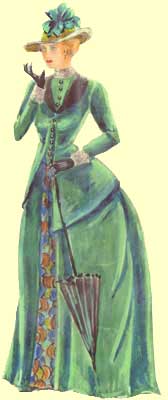
Political Awareness | In Parliament | The Workplace | Why South Australia?
The Aboriginal Voice | Cultural Diversity

 Reform
of social and political systems could not be achieved by individuals
alone, such as Mary Lee and Catherine Helen Spence. They were
part of organisations formed as lobby groups with the aim of educating
the community and influencing the legislative process of Parliament,
and a historical overview of these lobby
groups is included here.
Reform
of social and political systems could not be achieved by individuals
alone, such as Mary Lee and Catherine Helen Spence. They were
part of organisations formed as lobby groups with the aim of educating
the community and influencing the legislative process of Parliament,
and a historical overview of these lobby
groups is included here.
The Mortlock Library of South Australiana holds strong collections of archival material relating to most of these organisations, including handwritten minutes of meetings, correspondence, annual reports, and newspaper clippings. Looking at this material takes the reader back into another world, and just to see the handwriting of these committed women, many legendary in the movements towards greater equality for women and social justice generally, is an emotional experience. It is like being in a time warp: nothing can equal looking at the writings of the people at the time to feel what they experienced. For example, the minutes of the Woman's League 1895–1897 are in the handwriting of Catherine Spence, Elizabeth NIcholls, Rose Birks, Annie Martin and others.
The League of Women Voters 1909–1979, originally the Women's Non-Party Political Association, worked effectively for 70 years, and two of its lobbying success stories are hghlighted here. A key person involved with this organisation was Ellinor Gertrude Walker 1893-1990, who I refer to as a woman for all times because her interest in advancing the status of women lasted over several generations, and kept up with the concerns of the day.
As well as these fully fledged organisations, there were other informal groups of women meeting and developing political awareness. For example, the handwritten minute book of the Girls Social and Political Union 1914-1917 shows the interests and concerns of a group of high-minded young women who were into self-education and self-improvement. Several members of this informal group went on to become involved in the Women's Non-Party Political Association.
Today, the Women's Electoral Lobby continues the tradition of being a non-party political lobby group watching over government decisions which impact on women, and supporting a range of agencies working for women.
There are many other organisations, not represented in this website as yet—
Woman's Christian Temperance Union of South Australia 1880s—
Working Women's Trade Union. Records are not held by State Library.
United Trades and Labor Council of South Australia. Microfilm copies of records are held, and access to this material is only with written permission of UTLC.
National Council of Women 1973—74
Women's Liberation Movement 1969—1989. Archives of the WLM were transferred to the State Library of South Australia in 2009. Catalogue records describing the contents of the archive can be viewed by performing a 'collection' search for Adelaide Women's Liberation Movement Archives. Search SLSA catalogue for 'Adelaide Women's Liberation Movement'

| Copyright and this website | Disclaimer | Privacy | Feedback | Accessibility | FOI This page last updated on Friday 11 April, 2014 14:46
|
State Library of South Australia |